|
|
|
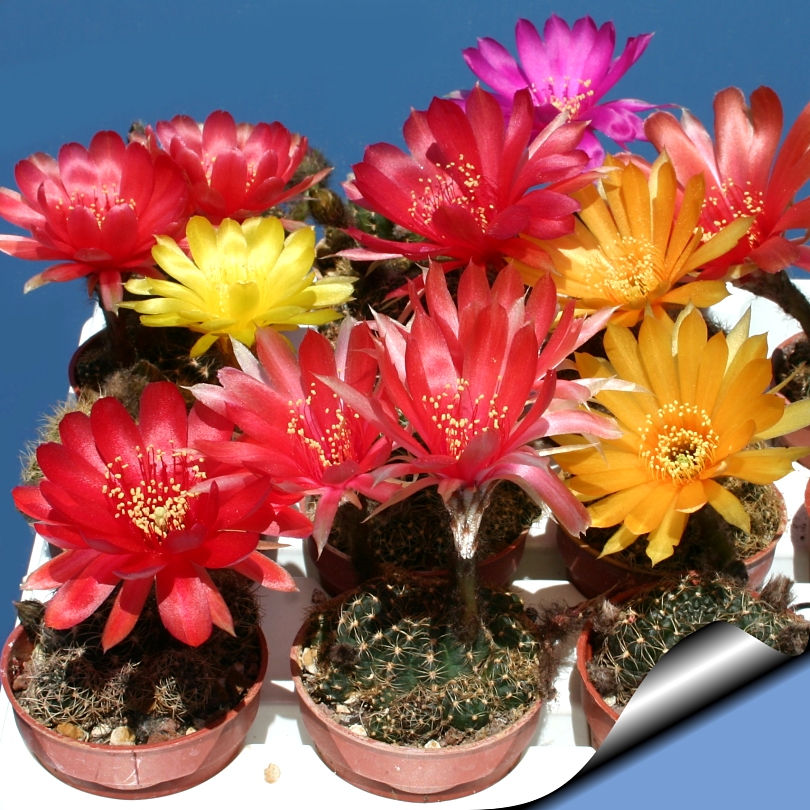
Lobivia arachnacantha
Dark reddish-green body, spidery spines and beautiful spectacular
multicoloured flowers.
|
|
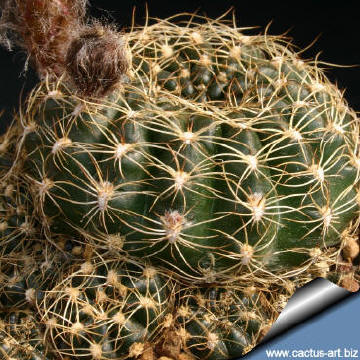 |
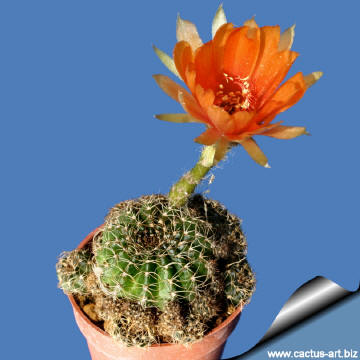
|
|
The species name "arachnacantha" comes from the Greek for "with spider
web-shaped spines.
|
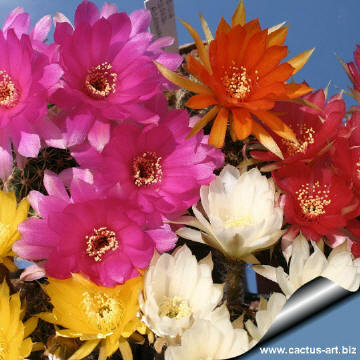
|
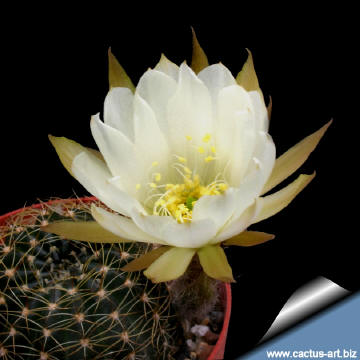
|
|
. |
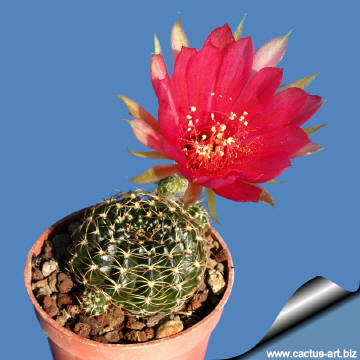
|
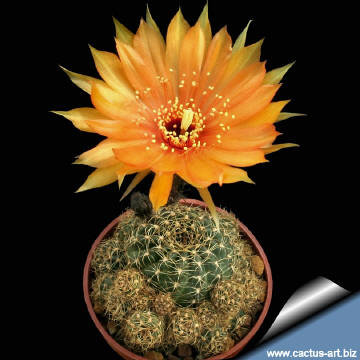
|
|
. |
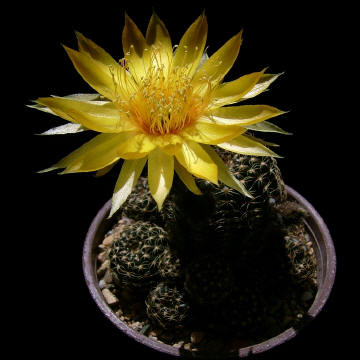
Photo and ©
copyright by
Mladen Turcinovic (Croatia) |
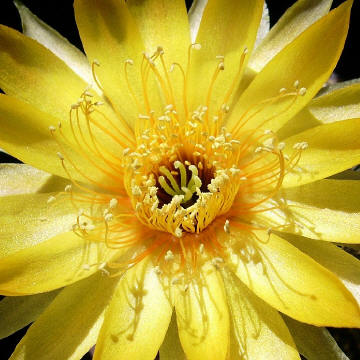
Photo and ©
copyright by
Mladen Turcinovic (Croatia) |
|
|
|


Advertising
|
|
|
|
|
Family:
Cactaceae (Cactus
Family)
Lobivia arachnacantha
Accepted
Scientific name:
Echinopsis
ancistrophora ssp. arachnacantha (Buining & Ritter)
Friedrich
Origin: Bolivia.
Conservation status: Listed in
CITES appendix 2.
Synonyms:
-
Echinopsis arachnacantha
-
Pseudolobivia arachnacantha
|
|
Description:
Clusters freely,
will form large clumps in time.
Stem: Flattened to spherical, dark green with ribs weakly notched
Each head is up to 4 cm wide.
Spines: All radials
spider web-shaped, white,
yellow or brown, bristly, curved and short.
Flowers: Very showy,
about 5 cm cm wide with a
slender floral tube up to 5cm (or more) long, commonly golden yellow to
orange often bigger than the plant itself. But red or white coloured
flowers are also reported. Blooms open during the day from spring
through summer.
Fruit: Reddish green.
|
|
|
|
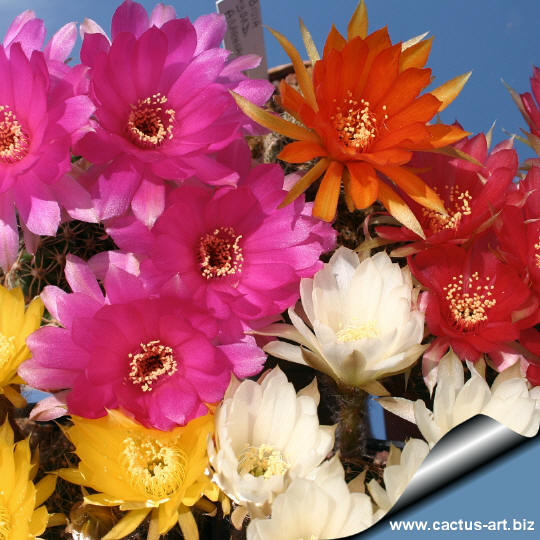
Flowers come in a wide range of colours.
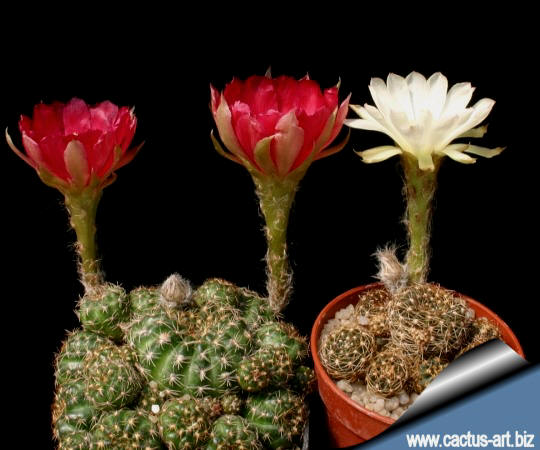
The flowers colour range from pure white to dark red, but
usually they are yellow or orange.
Cool and dry winter culture helps bring it into its greatest splendour,
|
|
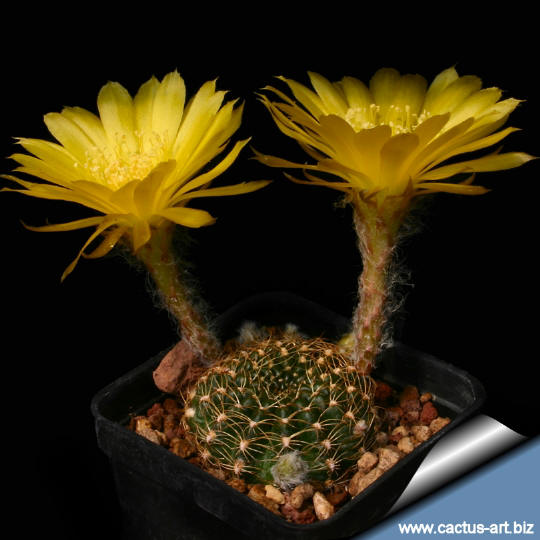
L. arachnacantha
(WR180 Valle
Grande, Samaipata, Santa Cruz, Bolivia)
The blooms are very showy, about 5 cm cm wide with a slender
floral tube up to 5 cm (or more) long. |
|
Cultivation: It is a good beginner cactus and very easy to
grow and flower. It is quite resistant and occasionally gets covered by
bright showy yellow blossoms also neglected in a dry windowsill. Requires
good drainage and very porous
potting mix.
Watering Needs Need regular water in spring to fall but do not
water again until dry. Also, it is a species that is dormant in the
winter and require very little water (maybe even none) during the cold
months.
Frost Tolerance: Light frost protection required. Minimum of
5ºC for safe growing (but hardy up to -5°C or less) but some clones are
hardy to lower temperatures. Requires to be kept below 7°C in winter to
flower well in the spring.
Sun Exposure: Requires bright light (protect from
strong
midday sun).
In shade the body colour will remain mostly green, while full sun will
darken it and give it red/brown body colour. Can be
sunburned if moved
from shade/greenhouse into full sun too quickly. The amount of sunlight
it can withstand without scorching depends upon the how hot it becomes
in the summer in the locale in which it is planted. It will have more
colour if it receives more light. During the spring it may be able to
take full sun until the heat arrives at the end of spring. In an area
that has hot afternoon sun, it may be able to take full morning sun, but
requires afternoon shade or afternoon light shade.
Propagation: Seeds or offsets that appear at the base; leave
them attached to form a cluster, or wait until they are 1/3 the size of
the parent and then detach and plant.
|
|